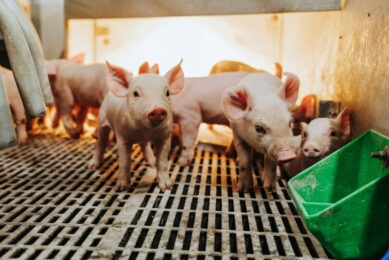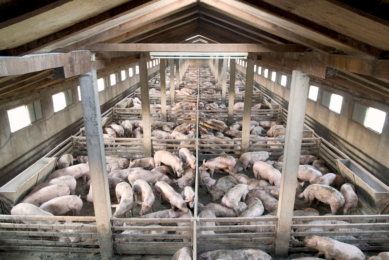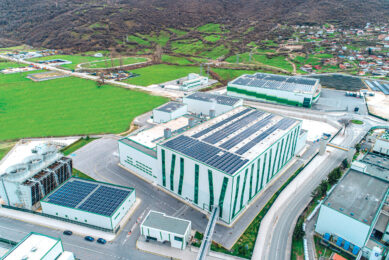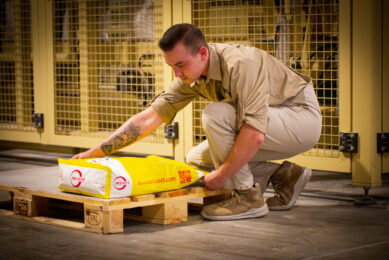Cutting-edge sensor and AI technologies to improve pig health
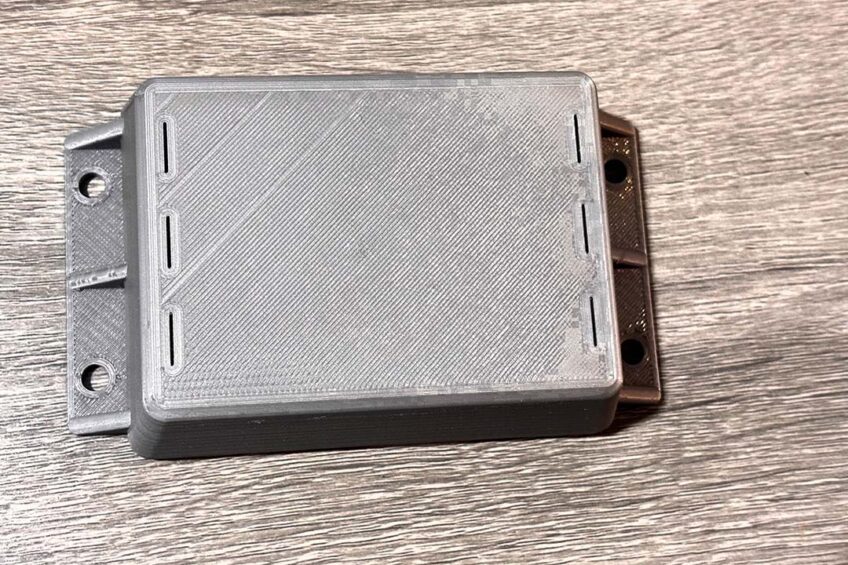
Automated monitoring of conditions in pig barns is not a new concept. If we can measure air quality, temperature, and other environmental factors, we can maintain pig welfare and health at higher levels. We also ensure that feed efficiency is optimised, so that all the energy, water, fertiliser and other inputs that went into feed production are not wasted.
PIG HEALTH SPECIAL 2024 – read all articles
Besides sustainability and welfare, automated pig barn monitoring and faster response to any abnormalities also means better worker health and a way to address the dire labour situation on pig farms in the US and other areas. While there are initial capital costs for such systems, their benefits relating to health, welfare, labour and efficiency pay farmers back at a swift pace.
Now, with new sensors and AI technology, pig barn monitoring – and monitoring of pigs as well – is taking these factors to unprecedented levels. Among the companies working on these technologies is AIDKorea, which since its start in 2017 has drawn strong attention and support in both government and industry circles – not only in its home country of South Korea, but in India, Malaysia, the US and the EU.
Model for the livestock industry
AIDKorea’s strategy is to set up cameras in pig barns (with over 1000 installed in South Korea and Vietnam already) which take pictures continuously. At the same time, an artificial intelligence (AI) system constantly compares images to a growing picture database (over a million images so far), specific to the pig breed found on the farm. This enables the AI to determine if the pig growth rate is within normal parameters, but also to detect and report on abnormalities in behaviour such as limping or lying down for atypical periods of time.
This analysis is combined with continuous data from sensors that measure barn environment factors that directly impact pig health, including temperature, humidity and gas levels. Ventilation and other pig production aspects can be adjusted as needed in real time, either automatically or by barn workers.
In addition, AIDKorea is providing valuable insights to government agencies in terms of livestock disease at regional and national levels. “We are carrying out blood sample analysis and testing with 16 types of technology to identify disease and immune system status,” explains David Cheon, AIDKorea Director of Global Business Development. “This allows farm managers to apply vaccines and/or immune reinforcement programmes to proactively defend against diseases before they impact pig health and welfare and before profits are negatively impacted.”
Along the way, AIDKorea has been recognised as a model for the livestock industry by the South Korean government, and has received many awards (e.g. the Select USA Summit Award, K-Global based in Silicon Valley, the Edison Awards) and other types of recognition.
Sensor technology – Transport Genie
AIDKorea has recently incorporated sensors made by Ontario, Canada-based Transport Genie that measure carbon dioxide and ammonia in addition to humidity and temperature. Ammonia gas levels from barn manure are a significant factor in the health and welfare of pigs as well as barn workers. “We are now monitoring about 680,000 pigs in South Korea and Vietnam, with an expected annual growth rate of around 10%,” says Cheon. “We are also implementing our system in dairy barns in India. The IoT sensors from Transport Genie are helping us provide a new level of holistic care in our mission to improve barn premises and also the conditions during transportation of pigs and other types of livestock.”Indeed, use of the Transport Genie system in pig transport trucks and trailers is growing in many countries since it was introduced a few years ago.
Stressful time for pigs
Transport is among the most stressful times in the pig’s life from a welfare perspective. Some of the stress of transport stems from the pigs finding themselves in an unfamiliar and uncertain environment, but ambient conditions can of course cause additional stress. During hot and cold times of year, and with the number of annual extreme heat days increasing in many parts of the world, conditions in livestock trailers can veer towards severe animal discomfort.
Environmental conditions
The Transport Genie system automatically monitors trailer environmental conditions, and enables transport managers and drivers to proactively adjust conditions, for example by turning on misting or fan systems that cool the pigs. These systems can also be automated to adjust conditions when they approach a designated threshold.
Longhaul & sea travel monitoring
Beyond barns and livestock trailers, Transport Genie is also being trialled to monitor conditions of cattle transport on ships around Australia. Transport Genie on livestock trailers/trucks is also making inroads in Mexico, the Philippines, Canada and Denmark. In the US, several initiatives are about to get underway with swine and poultry.
GPS navigation & magnetic sensor
“We’ve made many updates and created one dashboard that can integrate with GPS navigation and fleet management systems,” says Transport Genie Founder and CTO Joel Sotomayor. “We’ve also recently created a magnetic sensor attachment assembly to address concerns about permanent attachment that could void trailer warranties, and which also makes it very to also move sensors around.”
Withstands ‘baking’ method disinfection
Transport Genie’s sensors, adds Sotomayor, are the only ones he’s aware of that are able to withstand the temperatures of the ‘baking’ method of livestock trailer disinfection. That is, some livestock transport companies disinfect their trailers after washing by applying ambient heat in a truck bay over a period of time. Manure, saliva and more in trailers has been identified as a significant risk factor (particularly in North America) in the spread of serious pig diseases such as Porcine Epidemic Diarrhoea and porcine reproductive and respiratory syndrome.



